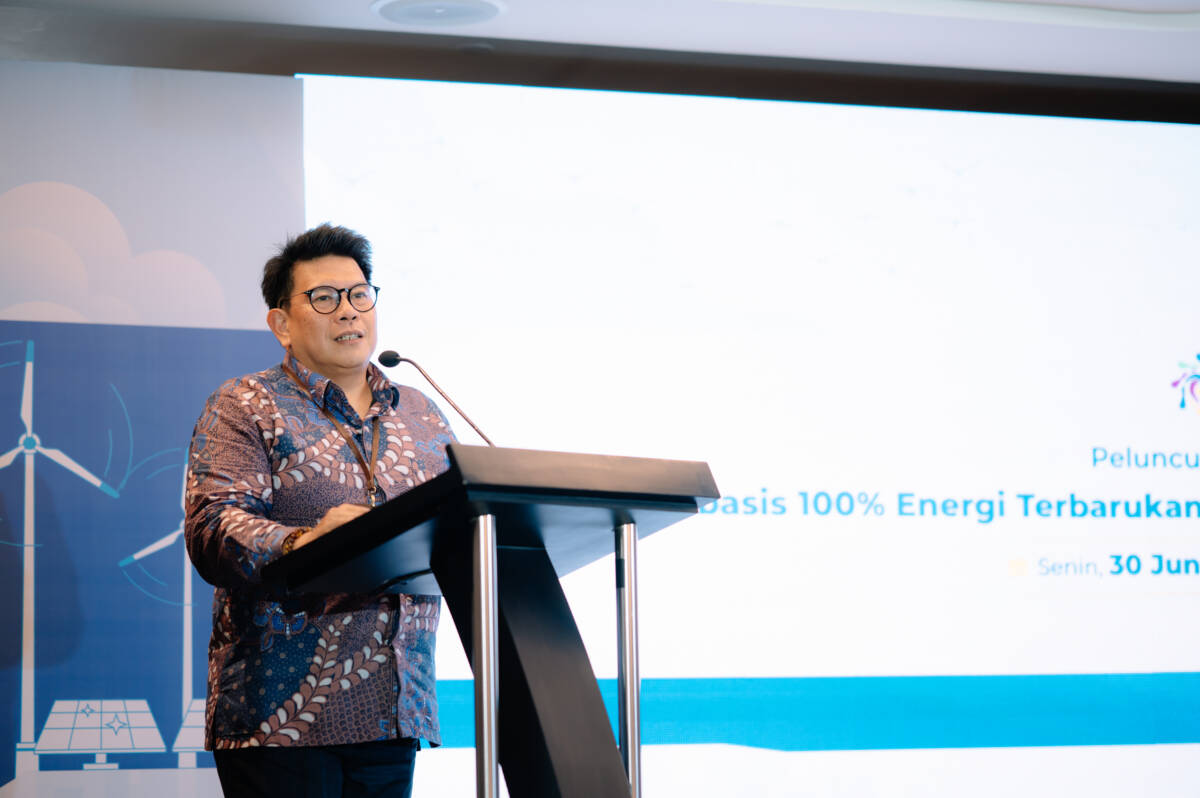Jakarta, September 24, 2025 – In his speech at the UN General Assembly (23/9/2025), Presiden Prabowo Subianto reaffirmed Indonesia’s commitment to the Paris Agreement and to achieving net zero emissions (NZE) by 2060. He even conveyed optimism that Indonesia could reach the NZE target much earlier. The President outlined several strategies to support this ambition, including reforestation of more than 12 million hectares and the creation of green jobs. He also emphasized that starting next year, most additional electricity capacity will come from renewable energy, and that Indonesia aims to position itself as a global hub for solutions in food, energy, and water security.
The Institute for Essential Services Reform (IESR) believes that President Prabowo’s optimism about meeting the Paris Agreement targets should be reflected in Indonesia’s climate commitment document, the Second Nationally Determined Contribution (Second NDC). The government is currently in the final stages of drafting the Second NDC, which will serve as the national climate policy for the 2031–2035 period. Based on the results of the SNDC public consultation in August 2024, IESR assesses that the proposed targets remain insufficiently ambitious, as the emission reduction commitments show only marginal improvement. Compared to the Enhanced NDC (ENDC), the unconditional emission reduction target is 8 percent lower, while the conditional target is 9–17 percent lower outside the forestry and other land use (FOLU) sector. This indicates that significantly greater emission reductions are still required to align with the 1.5°C pathway.
Fabby Tumiwa, Chief Executive Officer (CEO) of IESR, stated that the government must step up its efforts to cut emissions in the energy sector instead of relying too heavily on the forestry and land use sectors. To align with the Paris Agreement targets, the renewable energy mix should reach 40–45 percent by 2030 and 55 percent by 2035. While President Prabowo has recently instructed the development of 100 GW of solar power plants and batteries during his administration, the implementation plan remains unclear. Moreover, Government Regulation No. 40/2025 on the new National Energy Policy, which was recently enacted, is still not aligned with the 1.5°C pathway.
“In addition to expanding renewable energy capacity, the government must begin planning and executing the phase-out of coal-fired power plants and reforming fuel subsidies to create a level playing field for renewable energy. The 100 GW solar power plant and battery project also provides an opportunity for the public to directly benefit from affordable, reliable, and environmentally friendly electricity. This ambition must be embedded in the emission reduction strategy of the SNDC,” emphasized Fabby.
IESR emphasizes that the SNDC should serve as a blueprint for all of President Prabowo’s climate commitments presented at international forums. While his recent speech at the UN General Assembly did not mention them, the president has previously conveyed at various global platforms his ambition to reach net zero emissions by 2050 through strategies such as phasing out coal-fired power plants within 15 years, achieving 100 percent renewable energy within 10 years, and ensuring electricity self-sufficiency. This inconsistency in messaging has created confusion about Indonesia’s climate commitments. Therefore, these pledges need to be formally integrated into national policy and/or the SNDC to ensure their realization.
IESR recommends that President Prabowo, first, establish the most ambitious emission reduction targets for Indonesia which are peaking emissions by 2030 and achieving net zero emissions by 2050 or earlier across all economic sectors. Second, the emission reduction plan in the SNDC should be revised to become more ambitious and equitable, aligned with the 1.5°C pathway. According to Climate Action Tracker, Indonesia’s targets consistent with this pathway are 860 million tons of CO₂e in 2030 and 720 million tons of CO₂e in 2035, excluding the forestry and land use (FOLU) sector. Achieving these targets will require both financial and technical support from the international community (conditional).
Third, Indonesia must formally submit its NDC to the UNFCCC no later than the end of September 2025, to demonstrate its climate commitment ahead of COP-30. Fourth, Indonesia should strengthen its climate diplomacy, particularly in the G20 and BRICS forums, by advancing ambitious cooperation on mitigation and adaptation while supporting Brazil’s Presidency agenda at COP-30.
Delima Ramadhani, Climate Policy Coordinator at IESR, emphasized that the government should use the outcomes of the first Global Stocktake (GST) as a framework for shaping climate action in the SNDC. This process is a crucial component of the Paris Agreement’s ambition cycle. At COP28, the first GST produced collective key targets necessary to achieve the Paris goals.
IESR recommends several measures to enhance the ambition and credibility of Indonesia’s climate targets. First, retire old and inefficient coal-fired power plants with a total capacity of 9 GW by 2035, in line with Presidential Regulation No. 112/2022, Astacita No. 2 on the green economy, and Minister of Energy and Mineral Resources Regulation No. 10/2025 on the energy transition roadmap. This plan must be supported by the development of 100 GW of renewable energy. Second, reform fossil fuel subsidies to encourage energy efficiency and reduce dependence on fuel imports.
Third, accelerate energy efficiency and conservation through standardization, certification, and easier access to capital, enabling industries and buildings to cut emissions while reducing long-term costs. Fourth, follow up on the Global Methane Pledge, which commits to reducing global methane emissions by 30 percent by 2030, a pledge endorsed by President Joko Widodo in 2021.
In his speech, President Prabowo emphasized the importance of leaving a better world for future generations. In this context, IESR urges the government not to miss the opportunity to refine policy direction, take strategic steps to strengthen the credibility of Indonesia’s climate targets, and demonstrate leadership in global climate action, while ensuring that the national energy transition remains fair, inclusive, and sustainable.

